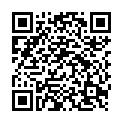|
|
|
| Module code: E305 |
|
4V+2P (6 hours per week) |
|
8 |
| Semester: 3 |
| Mandatory course: yes |
Language of instruction:
German |
Assessment:
Written exam
[updated 06.07.2021]
|
E305. Biomedical Engineering, Bachelor, ASPO 01.10.2011
, semester 3, mandatory course, course inactive since 28.11.2013
E305 Electrical Engineering, Bachelor, ASPO 01.10.2005
, semester 3, mandatory course
|
90 class hours (= 67.5 clock hours) over a 15-week period.
The total student study time is 240 hours (equivalent to 8 ECTS credits).
There are therefore 172.5 hours available for class preparation and follow-up work and exam preparation.
|
Recommended prerequisites (modules):
None.
|
Recommended as prerequisite for:
E401 Graphical User Interface Programming
E421
[updated 14.04.2013]
|
Module coordinator:
Prof. Dr. Reinhard Brocks |
Lecturer:
Prof. Dr. Reinhard Brocks
Prof. Dr. Michael Igel
[updated 10.03.2010]
|
Learning outcomes:
After successfully completing this module, students will be able to explain the concepts of procedural programming and data abstraction and implement them in the object-oriented C++ programming language. They will be able to use design techniques to find solutions. Students will be able to use their knowledge about programming techniques, to create well-structured and documented programs. They will use basic tools from the field of software development to do so. In the practical course, students will learn to present programs and their solution concepts.
[updated 06.07.2021]
|
Module content:
Procedural programming/Data abstraction: Fundamental data types, operators, control structures, functions, pointers and arrays, validity ranges and lifetime of objects, classes
- Design techniques:
Program flow chart, structure diagram, UML class diagrams
- Programming techniques: Modularization, separating interfaces and implementation, data structures and algorithms
- Development tools:
Preprocessor, compiler, linker, shell, shell scripts, makefile, debugger
Lecture notes
[updated 06.07.2021]
|
Teaching methods/Media:
The practical course takes place in one of the computer labs.
[updated 06.07.2021]
|
Recommended or required reading:
Reference books
- Kernighan, Ritchie: Programmieren in C, Carl Hanser Verlag 1988, ISBN 3-446-15497-3
- Stroustrup, B.: Die C++ Programmiersprache, 4. aktualisierte Auflage, Addison-Wesley 2000, ISBN 3-8273-1660-X
Literature for learning and practicing
- Dausmann, M., Bröckl, U., Goll, J.: C als erste Programmiersprache, Vieweg+Teubner 2008
- Erlenkötter, H.: C++, Objektorientiertes Programmieren von Anfang an, rororo 2000, ISBN 3-499-60077-3
- May, Dietrich: Grundkurs Software-Entwicklung mit C++, Vieweg+Teubner, 2006
- Prinz, P., Kirch-Prinz, U.: C++ Lernen und professionell anwenden, MITP 2012
- Prinz, P., Kirch-Prinz, U.: C++, Das Übungsbuch, MITP 2007
- Wolf, J.: C von A bis Z, Galileo Computing, 2009, http://openbook.galileocomputing.de/c_von_a_bis_z/
[updated 06.07.2021]
|


